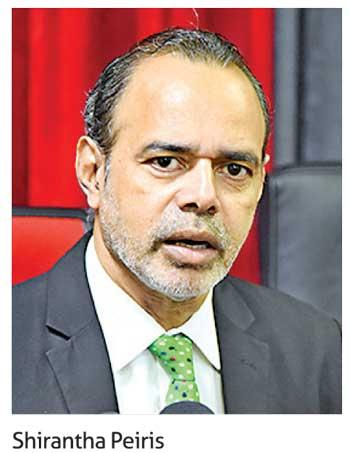Reply To:
Name - Reply Comment
 In an effort to tackle the brain drain issue faced by the tourism sector, the Sri Lanka Institute of Tourism and Hotel Management (SLITHM) has initiated rolling out short-term training programmes, where it will be mandatory for the students to serve the local hospitality sector to receive the certification.
In an effort to tackle the brain drain issue faced by the tourism sector, the Sri Lanka Institute of Tourism and Hotel Management (SLITHM) has initiated rolling out short-term training programmes, where it will be mandatory for the students to serve the local hospitality sector to receive the certification.
The training programmes, provided free of charge with support from the Asian Development Bank (ADB), would be considered complete only if the student works in the local hospitality trade for a full 12 months, SLITHM Chairman Shirantha Peiris said.
“We cannot stop those who want to leave the country. But since we are investing in the training, we are bringing in a pay-back component, which is they have to work in the country to receive the certification,” he said.
“We believe that by doing so, when the trained students do decide to leave, they will be able to work in the international hospitality sector with better pay,” added Peiris.
The decision is part of a strategy to ensure the required talent pool remains in the island nation, as the tourism sector, which has been hard hit since 2019, is seeing a revival. According to the SLITHM, only 40 percent of the tourism sector workforce is skilled.
To increase the proportion of the skilled workforce, the SLITHM has obtained an ADB grant of Rs. 25 million to train about 1,500 individuals over the next year.
Peiris also expressed concerns about the growing tourism industry in the Middle East, particularly the ambitious plans of the Kingdom of Saudi Arabia (KSA), which may lead to an increased workforce outflow from Sri Lanka’s hospitality sector.
The KSA aims to attract 150 million visitors by 2030 and plans to source a skilled workforce from the South Asian region to support its expansion.
For many years and possibly decades, numerous Sri Lankan expatriates working in the Middle East have been contributing to the tourism and hospitality sector. Attractive factors such as higher wages, improved working conditions, training opportunities and promising career prospects have been drawing them to the region.
Last month, the KSA inaugurated the Riyadh School of Tourism and Hospitality, which is envisioned to become the world’s first student-centric academy to unite all facets of tourism training required to empower the next generation of tourism and hospitality leaders from around the world and bridge the global tourism skill gap.
To cushion against the possible impacts on the local tourism sector, Peiris said Sri Lanka is exploring the option of establishing a branch of the academy in Sri Lanka, where 50 percent of the trained workforce would be sent to the KSA and the remaining would be retained to serve the tourism sector in Sri Lanka.
However, talks about this are in the very early stages, Peiris said. (SAA)
